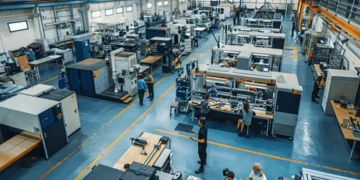Finding the perfect industrial ice maker for your business needs can be quite the challenge. This task requires a balance of performance, efficiency, and reliability to ensure that your operations run smoothly and cost-effectively. A well-chosen ice machine can be a game-changer in industries ranging from hospitality to healthcare, where ice is a critical component of daily operations. To make an informed decision, it’s crucial to understand the key factors at play, including capacity, energy consumption, maintenance needs, and vendor reliability. Keep reading as we explore the essential considerations for selecting the best industrial ice maker for your needs.
Navigating the Market: Tips for Choosing the Right Vendor and Warranty Options
When shopping for industrial ice makers, the choice of vendor is just as crucial as the machine itself. Look for suppliers with a strong reputation, responsive customer service, and reliable after-sales support. The right vendor can guide you through setup, provide expert advice, and quickly address any machine issues, ensuring a smoother purchasing experience.
For fabricadores de hielo industriales, pay close attention to warranty and service agreements, making sure you understand what’s covered, for how long, and the repair process. Ask for references or case studies from similar businesses to gauge reliability, and choose vendors who provide easy access to replacement parts and prompt service. This helps minimize downtime and protects your investment.
Assessing Your Industrial Ice Maker Needs: Capacity and Speed
When selecting an industrial ice maker, it is essential to assess your establishment’s daily ice requirements to ensure the machine meets operational demands without wasting energy. Production speed plays a key role in high-demand environments like busy restaurants or hospitals, where quick ice turnover is necessary to maintain efficiency.
Storage capacity should align with usage patterns to minimize frequent ice transfers while avoiding excess that could compromise hygiene and taste. The size and shape of the ice are also significant, as different forms affect melting rates and practical use. Customizable options allow tailoring to specific needs, whether for cooling beverages or preserving perishable items.
Understanding the Different Types of Industrial Ice Makers
Industrial ice makers come in various designs tailored to specific applications, including modular, undercounter, countertop, and combination ice/water machines. Modular units offer high output and flexibility with storage bins, while undercounter machines suit spaces with size limitations. Countertop dispensers, common in healthcare or office settings, provide individual servings and often include water dispensing, optimizing convenience.
Combination units work well in self-service environments, delivering ice and water efficiently. Placement considerations such as noise levels, cleaning accessibility, and maintenance requirements are important for smooth operations and sanitation. Certain industries also require specialty ice, like flake or nugget, used in patient care or food service, necessitating machines that consistently produce high-quality ice.
The Importance of Energy Efficiency in Industrial Ice Machines

Energy efficiency is a key consideration when choosing an industrial ice maker, as these machines often operate continuously. Models with ENERGY STAR certification or other recognized standards indicate compliance with energy performance criteria, helping reduce operational costs and support sustainable practices. Programmable settings enable operators to adjust ice production to demand cycles, optimizing energy use and lowering utility bills.
Eco-friendly refrigerants can minimize environmental impact and may offer tax incentives or rebates. Water-efficient models reduce consumption while producing the same output, contributing to cost savings and conservation efforts. Efficiency should be balanced with the machine’s ability to maintain performance and meet operational demands without compromising ice quality.
Maintenance and Durability: Key Considerations for Longevity
Maintenance is a critical consideration for industrial ice makers, as regular cleaning and servicing prevent bacterial growth and ice contamination. Machines with easy-to-clean components and accessible design make maintenance more efficient and less burdensome. Durability is closely linked to maintenance, with high-quality materials and robust construction, such as stainless steel or corrosion-resistant finishes, ensuring longer service life in demanding industrial settings.
Reliability is essential to avoid costly downtime, so selecting a machine from a reputable brand with positive customer feedback is important. Warranty coverage also plays a role in protecting against unexpected failures, and understanding the terms, coverage, and required maintenance practices is necessary to maintain its validity.
Overall, the journey to procuring an industrial ice maker requires thorough research and careful consideration of multiple factors. By focusing on the specific needs of your business, evaluating energy efficiency, factoring in maintenance, and selecting the right vendor and warranty, you position yourself to make a well-informed decision. The right choice will not only fulfill your operational requirements but also prove to be a valuable long-term investment for your enterprise.











